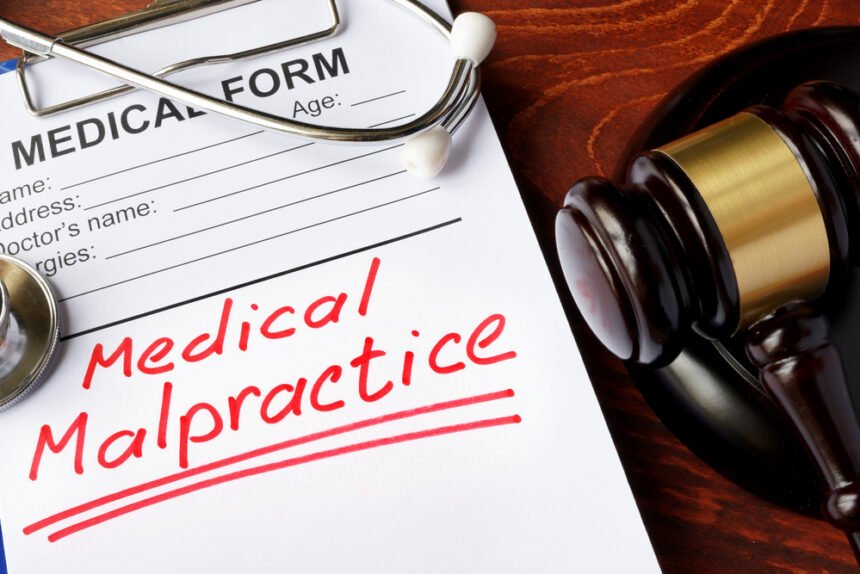Medical malpractice and negligence are complex areas of the law, and they’re things that medical professionals and patients alike need to have an understanding of. The following are some of the key things to know about malpractice and negligence and the standards for determining each.
What is Medical Negligence?
Medical negligence is actually a fault theory of the law, and it’s what the majority of medical malpractice cases are based on.
There’s a tendency to use negligence and malpractice interchangeably, but medical negligence is just one element of a large malpractice claim.
Negligence is the legal theory that other personal injury claims are based on as well, such as car accident cases.
The concept that underlies negligence is that someone failed to use the care a reasonable person would have under similar circumstances.
A reasonable person is legally described as someone with ordinary prudence, meaning that a reasonable person would approach a similar situation cautiously and base their actions on common sense.
The reasonable person standard is objective. The question isn’t whether or not a medical professional was justified in how they acted. Instead, it’s just a question of whether their behavior would be the same as a reasonable person.
Even if there are damages, if legally it’s found that a reasonable person would have made the same error or mistake under similar circumstances, the at-fault medical professional or party may not be liable for damages.
A jury looks at the facts of a case to determine what they believe a reasonable person would have done given the circumstances.
In a medical negligence scenario, the practitioner made a mistake but did so with the belief that they were doing the right thing.
With medical negligence, there’s a consideration of what another practitioner with a similar background and role in the medical community would have done and whether or not they deviated from the standard of care.
Medical negligence doesn’t always mean injury to the patient occurred. So that means that yes, a practitioner could behave negligently, but if it didn’t lead to an impact on health for the patient, then there are no grounds for a malpractice case.
What Is Medical Malpractice?
Malpractice takes into consideration intent. This doesn’t mean a doctor or practitioner meant to cause harm, but it does mean the doctor had the intent to do something, knowing it could result in harm.
Negligence can also become malpractice when the treatment causes harm. For example, it could worsen an existing condition or cause an injury.
Damages have to be present before a negligence scenario can then give rise to a legitimate medical malpractice lawsuit.
When Is It Malpractice and When Is It Not?
Again, a medical malpractice claim is going to have one fact that’s true across the board. A health care provider’s action or inaction was not in line with the standard of care deemed appropriate under similar circumstances. That typically means there was negligence, although in some cases, recklessness can be part of the case.
Negligence in a medical situation could mean a health care provider didn’t diagnose a dangerous condition, failed to treat the condition appropriately, made errors during a procedure or surgery, or didn’t fully let the patient know what the risks of a procedure could be.
Again, recklessness can come into play, too, but this is pretty rare in medicine. For example, a doctor who is under the influence of drugs or alcohol is likely to be found to have acted recklessly.
What about when it’s probably not medical malpractice?
Medicine is an imperfect field and doctors, and health care providers are usually doing the best they can.
Just because a patient’s condition gets worse while they’re being treated, for example, this doesn’t inherently indicate negligence or malpractice.
There’s no way to guarantee how a patient is going to respond to a treatment, and there are also conditions that simply aren’t treatable. As long as a doctor acted reasonably in terms of care and skill, these situations wouldn’t be considered malpractice.
To expand on this, it’s not malpractice just because a patient has a terminal or untreatable illness.
Examples of Medical Malpractice
Some of the most common examples of medical malpractice include:
- Misdiagnosis: Your doctor might diagnose you with a condition that you don’t have while failing to treat one you do have. You might be treated for the wrong condition, and commonly misdiagnosed conditions include stroke, cancer, heart attack and pulmonary embolism. If a patient presents in a way that’s out of the ordinary, this wouldn’t necessarily be malpractice, but if another doctor with the same information would have made the correct diagnosis, this can be malpractice.
- Delayed diagnosis: A delayed diagnosis often relates to misdiagnosis. A delayed diagnosis can mean that a condition gets worse in the meantime. In a medical malpractice situation involving a delayed diagnosis, you would likely have to prove that had treatment started sooner, your condition would be significantly better.
- Childbirth injuries: There are a lot of specific examples of childbirth injuries including placental abnormalities and incorrect use of forceps.
- Surgical errors: This isn’t the most common but it’s one of the most talked-about categories of medical malpractice. Surgical errors can include failure to control bleeding, not adequately monitoring vital signs, using equipment that’s not sterile, leaving equipment inside a patient, or improper care before or after the surgery.
- Medication errors: This is very common and can include writing the wrong prescription, choosing the wrong prescription, overprescribing, or dispensing the medication incorrectly.
Finally, a medical error can also include not considering a patient’s overall medical history or age when prescribing medicine or not taking into account allergies.
There are hundreds of thousands of medical errors a year in the U.S., and most don’t meet the criteria for medical malpractice, but there are some that do. It’s something care providers have to be mindful of, even under challenging and stressful situations as has been the case for the past year during the pandemic.








